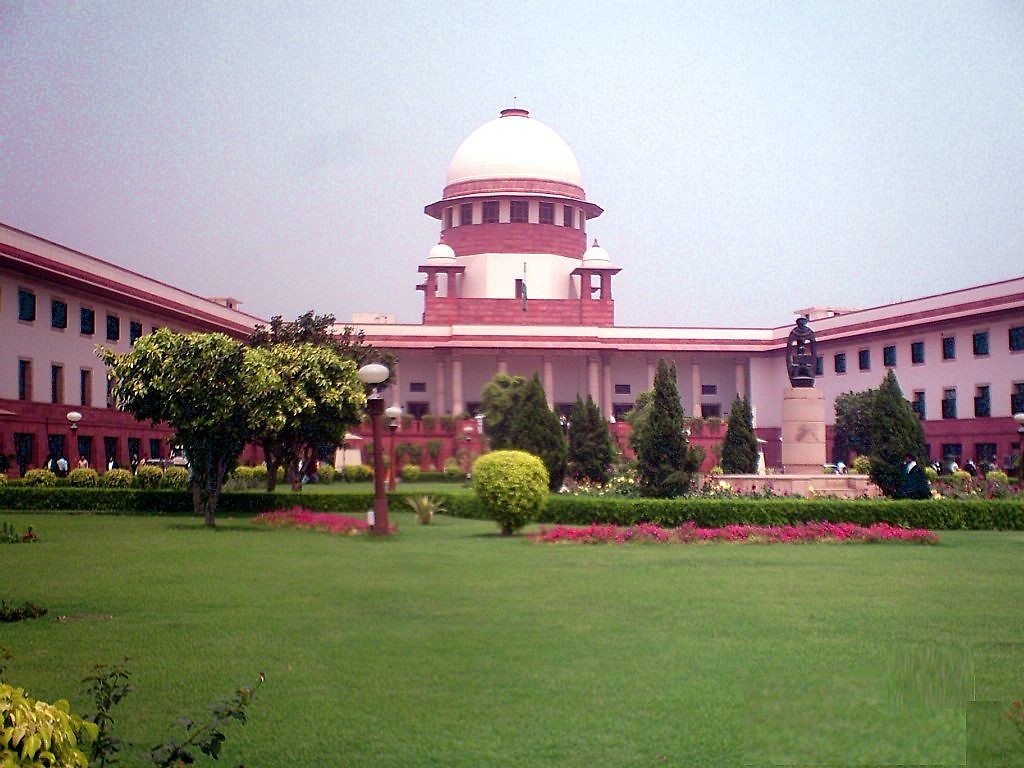The Supreme Court, in a unanimous decision by nine judges, declared privacy “as an intrinsic part of the right to life and personal liberty.” The most important and glorious aspect of the verdict, however, was the recognition by the apex court that life and personal liberty are “inalienable rights.” I find it strange that legal luminaries have not deliberated much on this aspect.
By accepting that a fundamental right is inalienable, the SC puts it beyond the purview of government and Parliament. Such acceptance regarding the rights to life and personal liberty makes the judgment truly historic, for its ramifications would not just be restricted to contemporary issues like Aadhar but will go much beyond that. The verdict shields the Indian citizen from any assault on his rights to life and personal liberty and other fundamental rights. No pretext—whether pertaining to welfare measures, public order, or morality—will be sufficient enough to abrogate or curtail the rights to life and personal liberty.
In their judgment, Chief Justices J.S. Khehar and Justices R.K. Agrawal, D.Y. Chandrachud, and S. Abdul Nazeer said, “Life and personal liberty are inalienable to human existence. These rights are… primordial rights. They constitute rights under natural law.”
This assertion is of greatest import, for it unambiguously imbibes the spirit of the United States Declaration of Independence, especially the famous statement authored by Thomas Jefferson: “We hold these truths to be self-evident, that all men are created equal, that they are endowed by their Creator with certain unalienable Rights, that among these are Life, Liberty and the pursuit of Happiness.”
Our judges have replaced Creator or God with nature, so the rights endowed by Creator become rights under natural law. The consequences and corollaries, however, are the same: by declaring life and personal liberty as inalienable rights, they are placed them beyond the reach of politicians and, in the words of Justice J. Chelameswar, “transient public opinion.”
Which means that these rights cannot be trifled with by any regime, whether it is of Sonia Gandhi’s entitlement-peddling kleptocracy or of Narendra Modi’s control-loving dispensation. In the current scenario, the judgment repudiates the arguments that Aadhaar-related entitlements precede the right to privacy. “What is better—two square meals or right to privacy,” a government lawyer had recently asked rhetorically in the court. Providing food to curtail or abrogate fundamental rights has been outlawed.
The Supreme Court has actually ruled out any effort, even a Constitutional Amendment, to curtail the rights to life and personal liberty. The four judges said that the two rights “are not creations of the Constitution. These rights are recognized by the Constitution as inhering in each individual as an intrinsic and inseparable part of the human element which dwells within. The human element in the life of the individual is integrally founded on the sanctity of life. Dignity is associated with liberty and freedom. No civilized state can contemplate an encroachment upon life and personal liberty without the authority of law. Neither life nor liberty are bounties conferred by the state nor does the Constitution create these rights. The right to life has existed even before the advent of the Constitution. In recognizing the right, the Constitution does not become the sole repository of the right. It would be preposterous to suggest that a democratic Constitution without a Bill of Rights would leave individuals governed by the state without either the existence of the right to live or the means of enforcement of the right. The right to life being inalienable to each individual, it existed prior to the Constitution…”
As I mentioned earlier, the ramifications of this judgment will be profound and far-reaching; what happens to Aadhar is of not much importance. By saying that life and personal liberty are inalienable rights, the apex court has secured them for citizens from the meddling of an increasingly interventionist state. The top court has read the Indian citizens’ declaration of freedom.
It is heartening to note that the political class is not planning to confront the Supreme Court over the matter. In fact, the Modi government refuses to accept that it has suffered a setback. Law Minister Ravi Shankar Prasad said the government has always regarded the right to privacy should be a fundamental right. In a bid to claim something in the landmark verdict, Finance Minister and prominent lawyer Arun Jaitley said the SC has accepted that privacy, though a fundamental right, is an absolute right. Also, he asserted, the judgment augurs well for Aadhaar.
Senior Congress leader and former Union minister P. Chidambaram greeted the verdict, saying, “Today, we can once again celebrate our freedom.”
It should mean meant people’s freedom from the unsavory designs of politicians.
